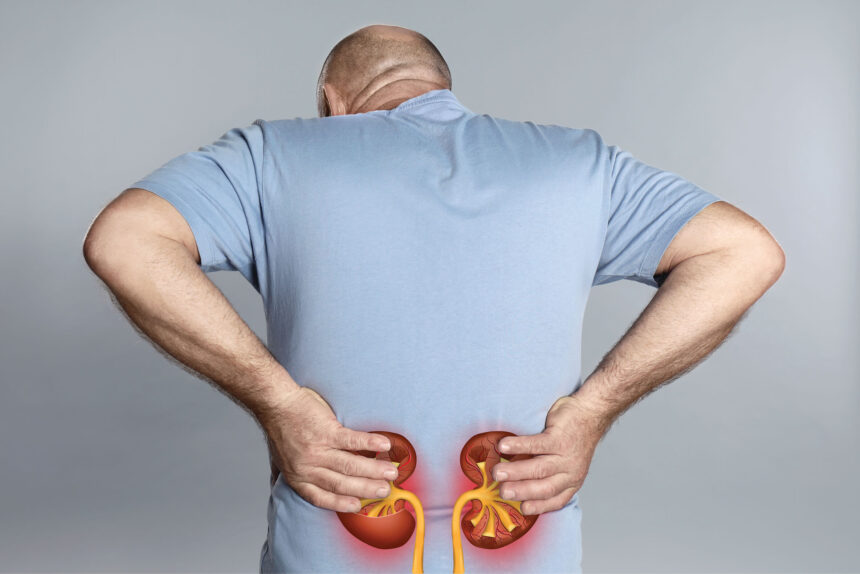Kidneys, often termed the body’s natural filtration system, play an indispensable role in removing waste and excess fluids, including urine. They maintain the body’s electrolyte balance and even produce hormones that regulate blood pressure, red blood cell production, and calcium metabolism. Despite their significance, kidneys are frequently neglected, with kidney diseases on the rise, affecting millions worldwide. It’s alarming to note how everyday habits and oversights can pose significant threats to kidney health. This article aims to shed light on common mistakes men make concerning kidney health and how to avert them.
1. Not Drinking Enough Water:
Water is to kidneys what oil is to a car’s engine. Proper hydration is crucial for the kidneys to function efficiently. Dehydration, or not consuming adequate water, forces the kidneys to overwork, potentially leading to kidney stones or chronic kidney diseases. Kidney stones form when minerals and salts crystallize in the kidneys due to concentrated urine, a consequence of dehydration.
The commonly cited “8×8” rule, which suggests drinking eight 8-ounce glasses of water daily, is a good baseline. However, the actual requirement can vary based on individual factors like age, activity level, and climate. It’s crucial to listen to your body; if you’re thirsty, don’t wait, drink up!
2. Overuse of Over-the-Counter Painkillers:
Popping an over-the-counter painkiller might seem harmless, especially after a grueling workout or to manage chronic pain. However, frequent consumption of non-prescription pain relievers, especially non-steroidal anti-inflammatory drugs (NSAIDs), can be detrimental to kidney health. These drugs can reduce blood flow to the kidneys, leading to diminished kidney function over time, especially with consistent use.
While occasional use is generally safe for most, it’s crucial to consult with a healthcare provider for long-term pain management strategies. Alternatives like physical therapy, exercise, or even certain dietary changes might be recommended based on the root cause of the pain.
3. Consuming Too Much Sodium:
Salt might be a staple on our dinner tables, but its active component – sodium – when consumed in excess, can put a significant strain on our kidneys. High sodium intake forces the kidneys to work overtime to expel the excess salt, thereby diminishing their efficacy over time. This can increase the risk of kidney disease and in some cases lead to high blood pressure, a leading cause of kidney damage.
The catch here is that sodium isn’t just in the saltshaker. Processed foods, canned goods, and even certain beverages are loaded with hidden sodium. Some culprits include fast foods, pre-packaged meals, and condiments like soy sauce.
To safeguard kidney health, it’s advisable to:
- Check food labels for sodium content.
- Opt for fresh, whole foods whenever possible.
- Limit the consumption of highly processed foods.
- Use herbs and spices to flavor food instead of relying solely on salt.
4. Ignoring Blood Pressure and Blood Sugar Levels:
Both hypertension (high blood pressure) and diabetes have been identified as primary risk factors for chronic kidney disease. Kidneys contain myriad tiny blood vessels that filter waste from your blood. High blood pressure can damage these vessels, rendering the kidneys less efficient. Similarly, diabetes can harm the kidneys over time as they filter out the excess sugar present in the blood.
To proactively protect kidney health:
- Monitor blood pressure and blood sugar levels regularly.
- Follow prescribed medications and treatment plans diligently if diagnosed with hypertension or diabetes.
- Adopt lifestyle changes such as a balanced diet, regular exercise, and stress management techniques to keep these levels in check.
5. Avoiding Regular Check-ups:
Many kidney diseases present with no symptoms until they are advanced. By the time symptoms like swelling, fatigue, or changes in urine color and frequency appear, significant damage might have already occurred. Regular check-ups, including urine and blood tests, can catch kidney issues in their early stages when they are more manageable.
Preventive measures include:
- Annual health screenings, especially if there’s a family history of kidney diseases.
- Monitoring and reporting any unusual health symptoms to a healthcare provider.
- Taking kidney function tests seriously, especially as one ages or if they fall into high-risk categories.
Conclusion:
Kidneys, the unsung heroes of our bodily functions, deserve far more attention than they often receive. A blend of genetics, environment, and lifestyle choices can influence kidney health. Fortunately, awareness and proactive steps can substantially mitigate the risks. Remember, our habits today echo in our health tomorrow. By sidestepping common pitfalls and adopting a kidney-friendly lifestyle, one can pave the way for not just robust kidney health but overall well-being.








